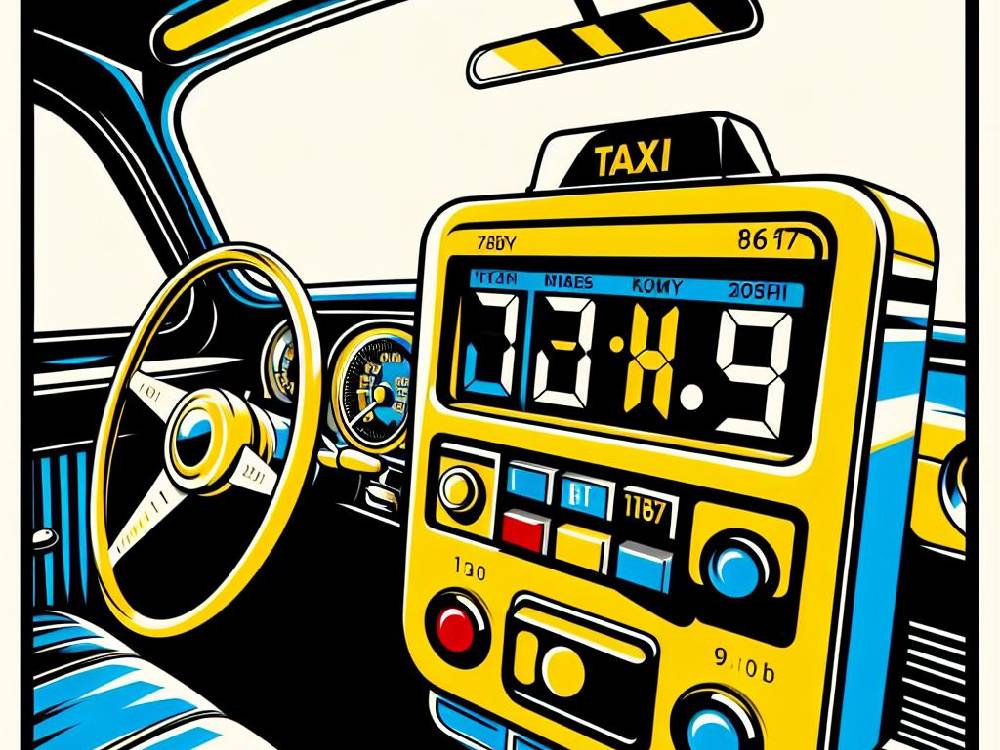Introduction
Ten medical conditions that your taxi insurance provider should know about.
When it comes to taxi insurance in the UK, staying within the legal guidelines is not just important—it’s crucial.
Failing to declare certain medical conditions to the DVLA can void your insurance and land you with a hefty fine.
Imagine being involved in an accident, only to discover your insurance won’t cover you because of an undeclared health issue.
Terrifying, isn’t it?
Ten Medical Conditions You Must Declare for Taxi Insurance
- Diabetes
- Sleep Apnoea
- Heart Conditions
- Eye Conditions
- Stroke
- Seizures and Epilepsy
- Vertigo
- Syncope
- Certain Operations
- Driving on Medications
Let’s dive into each condition and understand why they can affect your taxi insurance.
1. Diabetes
Diabetes is more than just managing blood sugar levels. It’s a condition that can significantly impact your ability to drive safely.
For instance, hypoglycaemia—a common complication—can cause sudden drowsiness and blurred vision. These symptoms could be dangerous while driving.
If you have diabetes, especially if it’s severe, the DVLA needs to be informed immediately. Failing to do so could void your taxi insurance, leaving you unprotected if an accident occurs.
Don’t risk it.
Always report your medical condition to the DVLA and your taxi insurance provider.
Learn more about how medical conditions impact your car insurance.
2. Sleep Apnoea
Sleep apnoea is another condition that can seriously impair your driving ability.
This condition causes your breathing to stop and start during sleep, leading to extreme fatigue.
Fatigue is one of the leading causes of road accidents, making it critical to report this condition.
Even if you feel that you can manage your sleep apnoea, the DVLA must be informed.
Your taxi insurance provider also needs to know to ensure your policy remains valid.
Don’t wait until it’s too late.
Stay protected by declaring your condition.
3. Heart Conditions
Heart conditions, such as arrhythmia, can severely impact your ability to drive.
Arrhythmia affects your heart’s rhythm, making it difficult to concentrate and safely operate a vehicle.
The DVLA requires that you report any heart condition to avoid putting yourself and others at risk.
If you fail to inform the DVLA, your taxi insurance could be invalidated.
Imagine the consequences of getting into an accident with no insurance coverage—financially and legally disastrous.
Ensure you’re driving safely and legally by reporting your condition.
4. Eye Conditions
Eye conditions like Glaucoma can significantly impair your vision, making it dangerous to drive.
Your eyes are your window to the road.
If your vision is compromised, so is your ability to drive safely.
The DVLA must be informed of any serious eye conditions.
This isn’t just about avoiding a fine—it’s about your safety and the safety of others on the road.
Don’t take that risk.
Explore more about How Cheap Sunglasses Can Invalidate Your Insurance
5. Stroke
A stroke is a serious medical event that can have long-lasting effects on your health and driving abilities.
After experiencing a stroke, you must stop driving for at least one month.
Even after you’ve recovered, the DVLA must be informed if any health issues persist.
Stay on the safe side by reporting your condition to your taxi insurance provider, ensuring your insurance remains valid.
6. Seizures and Epilepsy
Seizures, particularly those associated with epilepsy, pose a significant risk when driving.
If you’ve experienced a seizure while awake and lost consciousness, the DVLA will revoke your driving licence immediately.
This precaution protects both you and other road users.
However, all is not lost.
You may reapply for your licence if you go six months without a seizure and receive clearance from medical advisors.
But here’s the crucial part:
Failing to inform the DVLA and your insurance provider about your condition could void your taxi insurance.
This situation leaves you exposed, both legally and financially, if an accident occurs.
So, don’t let a lapse in reporting cost you more than just your licence.
For young drivers, understanding UK car insurance options with epilepsy is essential.
7. Vertigo
Vertigo, which causes recurrent or sudden dizziness, creates incredible danger while driving.
Imagine experiencing a sudden bout of dizziness while navigating a busy road.
If you suffer from vertigo, you must report this to the DVLA.
Additionally, inform your insurance provider as well to keep your coverage intact.
So, stay safe.
Stay insured.
And always report your condition.
Learn more about avoiding costly mistakes with dash cams and insurance.
8. Syncope
Syncope, a condition that causes temporary loss of consciousness, presents a life-threatening risk when it occurs behind the wheel.
Blackouts or fainting spells create serious risks while driving.
Therefore, if you have syncope, you must inform the DVLA to assess your fitness to drive.
Failing to report this condition not only endangers your life but also nullifies your taxi insurance.
This scenario leaves you facing severe financial and legal repercussions if an accident occurs.
So, don’t wait for an accident to happen.
Instead, report your condition and maintain valid insurance coverage.
9. Certain Operations
Certain surgeries, especially those involving your legs or mobility, can temporarily impact your ability to drive.
After surgery, your doctor will advise you on when it’s safe to return to driving.
However, you must inform the DVLA about your operation as well.
Imagine the consequences of getting involved in an accident without valid insurance coverage—it’s not a risk worth taking.
Therefore, ensure your safety and compliance by reporting your condition.
Find out more about navigating car insurance costs after surgery.
10. Driving on Medications
Certain medications, particularly those that cause drowsiness or impair your cognitive abilities, can make driving dangerous.
Strong painkillers, tranquillizers, and some antidepressants can affect your ability to drive safely.
If your doctor prescribes such medications, you must notify the DVLA and your insurance provider.
Driving under the influence of these drugs without proper notification could void your taxi insurance.
So, protect yourself by reporting your condition and ensuring your insurance remains valid.
Learn how rising taxi insurance costs impact UK fares.
Conclusion
Driving with a medical condition in the UK demands more than just caution.
It requires strict compliance with DVLA regulations.
Failing to report certain conditions not only voids your taxi insurance but also brings severe financial and legal consequences.
Therefore, stay informed about your health and its impact on your ability to drive.
And regularly update your insurance provider to keep your coverage intact.
For more helpful information, visit our other blogs on what insurance you need as a taxi driver and how to save money on your taxi insurance.







